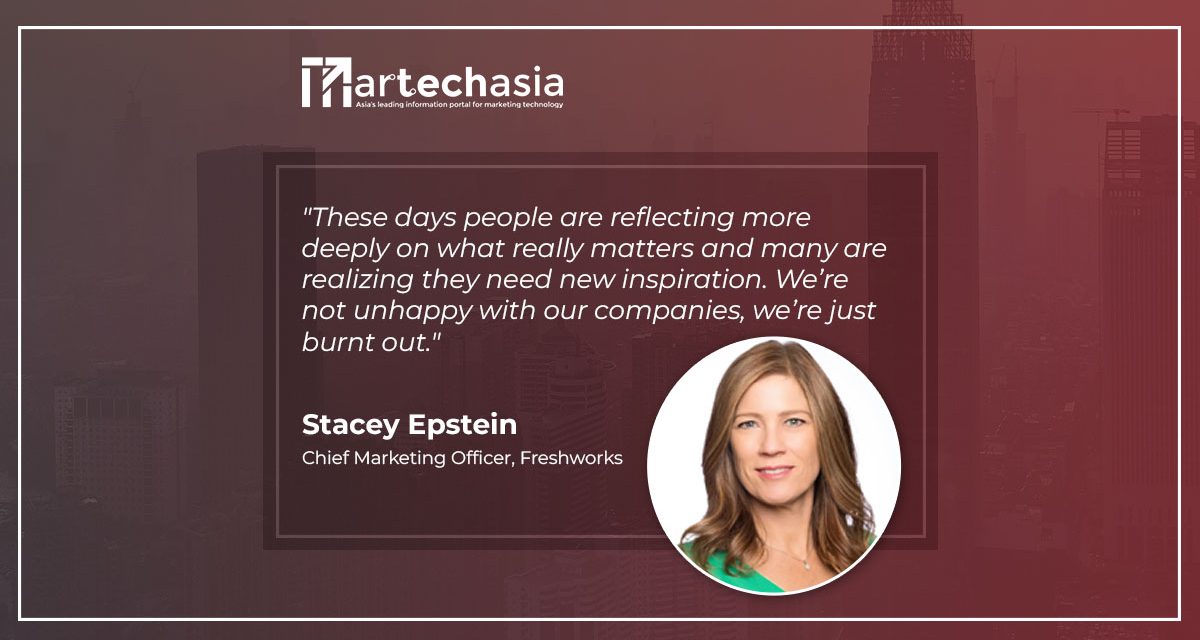What if instead of fighting against the Great Resignation, we embraced it?
It seems no company is safe from the Great Resignation. The most recent jobs report from the Labor Department showed that four million people quit their jobs in April. And there isn’t yet an end in sight: A report by Monster.com indicates that a whopping 95% of workers are considering leaving their jobs.
I’m at my 9th Silicon Valley tech company Freshworks and it’s clear that our focus on delighting employees has a very positive impact. We have a demonstrably strong culture with high employee satisfaction scores; a very well-liked, inspiring CEO; and strong ratings on Glassdoor. We offer flexible vacations, strong benefits, and compelling compensation. We’ve implemented “Fri-yay” days off every 6 weeks, and announced our #AndIt’sOK program to help employees handle the additional stresses of juggling stay-at-home life. We are doing everything we can to inspire and retain our talent.
And yet, we still have attrition. It’s not extreme, it’s certainly not any worse than any other of the myriad companies in our industry, but it’s real and it’s something we talk about as a leadership team. We know the cost of losing great talent and the cost involved in finding, hiring, and onboarding new talent. In my mind, talent is the single most important factor in company success. Losing key players slows work and changes the culture — and that’s rarely a good thing.
Turnover is nothing new, nor are corporate retention strategies. But the Great Resignation and extreme turnover that is happening today across industries is a different phenomenon that requires a different approach.
What if instead of fighting against theGreat Resignation, we embraced it? Our CEO Girish Mathrubootham has a mantra about leadership. He says we should “optimize for happiness.” It’s a stark departure from optimizing for efficiency, or productivity, or hours clocked. The theory is that, assuming you’ve hired the right talent, they will thrive if they are happy in their roles. Put simply, happy employees perform. Oxford University’s Saïd Business School found that happy employees are 13% more productive.
Many of today’s job seekers are not unhappy with their current companies; they simply need a change. Across the globe we are approaching sixteen months of zoom calls, homeschooling, and confinement. We can’t see our teams, we can’t be with customers, and our eyes are blurry. Zoom themes and generous vacation policies aren’t enough for most. And for others, transitioning to WFH has been a success, and the prospect of transitioning back into the office is not realistic. These days people are reflecting more deeply on what really matters and many are realizing they need new inspiration. We’re not unhappy with our companies, we’re just burnt out.
Unfortunately, we try to battle these new and different feelings from employees with our old tricks. When someone is ready for a change, the standard response is “what’s it gonna take to make you stay?” If I’m flat burned out, the word “stay” is a conversation ender. It also assumes that more money or a promotion is what they seek, when no amount of comp increase can fix burnout. In fact, throwing money and titles at a resigning employee often produces more harm than good. You’re rewarding a demotivated player who may stay for a few months, but is still likely to leave. At the same time, you’re setting new comp expectations for those remaining, not to mention exemplifying the wrong behavior in how to obtain a raise.
Welcoming the Great Resignation means truly listening to our employees who are checked out, tired, or just need to mix it up a bit; and helping them find new inspiration. Of course we should do what we can to constantly inspire our teams, but rather than icing people out when they give their notice, what if instead we rolled out the red carpet? What if we recognised that careers are long and cheered them on as they move into bigger positions that may not be available to them at their current company, hoping to one day work with them again? What if we celebrated that their departure gives us the chance to promote someone within, thus optimizing for the happiness of our broader workforce? Better yet, if we sought to understand what they seek, perhaps we can help them find new inspiration in a different role within the company?
When we listen to our team members with an empathetic ear and optimize for employee happiness instead of our own benefit, we might come to a much more mutually beneficial solution. Instead of asking how we can make them stay, if we ask, “what are you looking to do next?” and truly listen to the answer we can learn a lot. Sometimes the conversation leads to a new role in a different part of the company that reinvigorates them. I may lose their talents from my own department, but retain them at the company and spread fresh and knowledgeable contributions across teams. Win for both!
And when the conversation ends with the employee simply being ready to go, we can still optimize for employee happiness with a great result. I came to my role at Freshworks just a few months ago. I loved my former company where I had spent a decade, but I needed a new challenge to grow. I know they would have liked me to stay, but they were gracious and respectful and we parted on excellent terms. I didn’t get iced out, I was celebrated for the contributions I’d made. As a result, I still root for their success and now that I’m in a new role and hiring like crazy, I have resisted attempting to pull key talent from their teams.
For them, there were also silver linings. A woman on my team whom I’d mentored for a good part of her career moved into my executive role. She deserved it, and my leaving made room for her upward mobility. I couldn’t have been more thrilled for her, and I knew that she would add value in ways that perhaps I hadn’t. Even better, the company celebrations in support of her promotion outshined any emotions about my departure and her different leadership traits injected new enthusiasm across the organization. Employee happiness abounded, and the business doesn’t appear to have skipped a beat.
What if we embrace the opportunity the Great Resignation presents to take advantage of widespread industry turnover and add fresh, new talent to our own teams? In the last five months, I’ve made five (!) leadership hires that are already adding phenomenal expertise to the team. All of these new hires came from great roles at stellar companies but were ready for something new. Their impact is quickly being felt across the teams, and they are breathing fresh ideas and inspiration across the organization in impactful ways, maybe even helping to retain more talent on their teams.
In a conversation with my CEO last week we pondered, “if every company optimized for employee happiness, imagine what a better world it would be.” Instead of fighting the great resignation by focusing solely on how to retain employees who are ready to go, we have a golden opportunity to lead with empathy and celebrate new chapters. We can continue our standard retention practices but people will still leave — so perhaps we shouldn’t fight it so hard and instead try to see the new ways our people and our business might both prosper, not to mention the broader world.



















